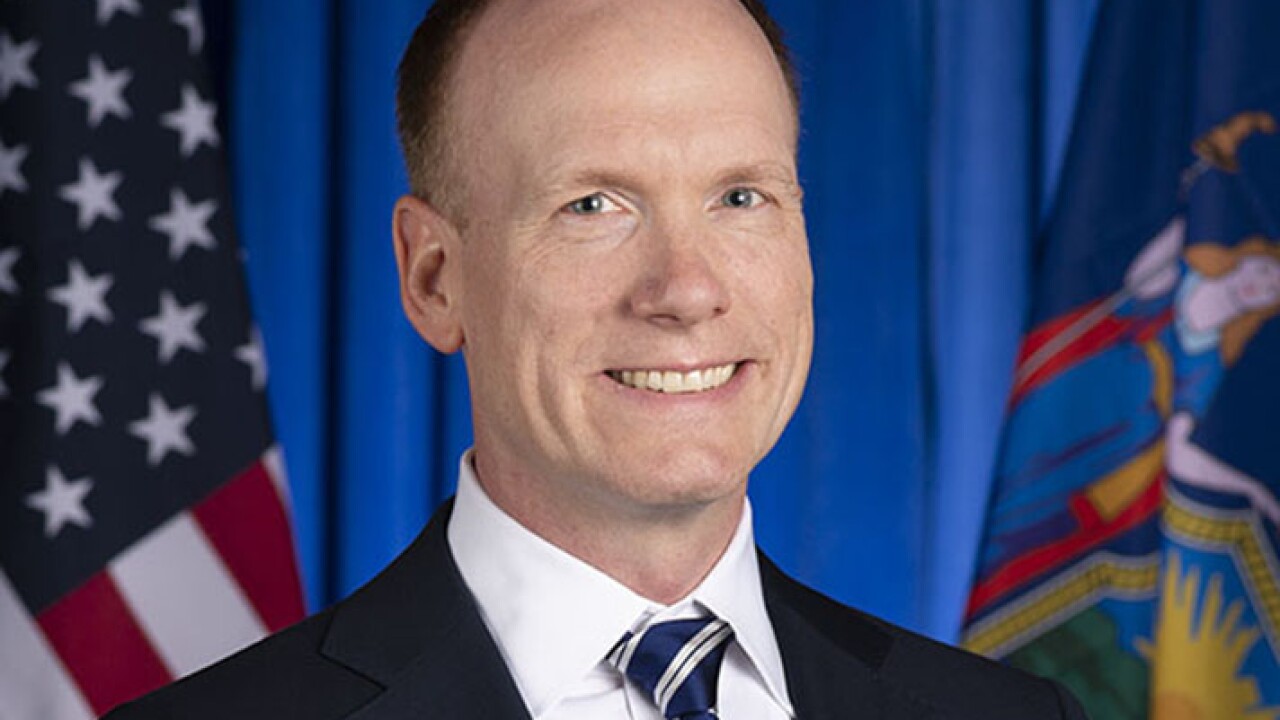Michigan State University's latest bout with leadership turmoil shines a light on the "G" in environmental, social, and governance factors that are on the municipal market's radar amid evolving views of risk factors and regulatory scrutiny, an analyst says.
President Samuel Stanley Jr. resigned last week after a public dispute with some of the elected board members about Title IX certification reports involving compliance on sexual misconduct claims and questions over the recent ouster of the business school dean for apparently failing to follow mandatory reporting protocols.
Stanley's departure marks the third by a president since the university was embroiled in the sexual abuse scandal involving former women's gymnastics team physician Larry Nassar.

The scandal, which sent Nassar to prison for decades for
"In our view, the continued leadership instability at MSU is a credit negative and an example of the importance of the 'G' factor in 'ESG,'" CreditSights said in its "Muni Catch Up" report Monday. "MSU's reputation is key for its ability to attract students, grants, and philanthropy. Bondholders should note elevated risk of negative ratings actions if trouble persists."
The university
The 195 basis point spread to comparable Treasuries held up well against the triple-A-rated University of Michigan's century bond that priced two weeks later. The UM deal offered more concessions due to its size and it priced into rockier market conditions.
The deal came as the impact of the Nassar scandal appeared to be receding, but the latest turmoil brings questions over university leadership and management back to the surface.
CreditSights shifted its recommendation on MSU bonds Monday downward to underperform from the market perform recommendation assigned last March.
"It felt like the governance problems were behind them. They had settled with the Nassar victims and recruited a new president from outside the institution. There were new policies on Title IX cases," said John Ceffalio, senior municipal research analyst at CreditSights.
Nassar, a team doctor for the university, sexually abused student-athlete gymnasts. Officials at the university and USA Gymnastics, which also employed Nassar, came under fire for allowing the abuse to continue over many years.
"Last week's resignation of the new president, who stated he had no confidence in the board, leads us to believe that the governance problems are not over and may be more systemic. This could also result in a lower rating or outlook for MSU, which would hurt performance of the bonds," Ceffalio said noting faculty's criticism and no-confidence vote in the board.
At current spreads, there is a risk of the bonds modestly underperforming their peers, CreditSights warned. The university's bonds had outperformed the University of Michigan but lagged the higher education index and double-A rated college and university bonds in the index.
The school's long taxables this month have underperformed the University of Michigan's.
"The underperformance of MSU's taxables versus UM's bonds is due to both credit concerns and that the smaller size of MSUs taxable bonds makes them less liquid than UM," Ceffalio said.
Moody's Investors Service listed the "reversal of stability in management and governance" a factor that could lead to credit deterioration in its report ahead of the March bond sale. Moody's rates the school Aa2 with a stable outlook.
"Management and governance is an important input into our credit analysis," Moody's analyst Jared Brewster said in an email. "Negative events don't always show up immediately in financial performance, but they can have longer-term reputational and institutional impacts."
S&P Global Ratings revised the outlook on MSU's AA rating to stable from negative ahead of the March sale specifically citing the university's management through the operational turbulence caused by the Nassar
. Higher education institutions feel governance turmoil more acutely than some sectors but it's just one factor in the credit score.
"Leadership, or the experience and abilities of management and governance, is very important to higher education institutions and their related credit quality," S&P's lead MSU analyst Jessica Wood said in an email.
"Isolated events with modest financial consequences usually do not have enough of an effect on a university's enrollment, financial operations, or fundraising to warrant a rating action but can affect the credit score for management and governance in our credit scoring model," Wood said. "However, those crisis events that are more pervasive and not well managed from the outset are more likely to have negative rating implications, as we believe this could indicate significant weaknesses within the management or governance team."
Both
Stanley took over as president in August 2019, replacing former Gov. John Engler, who had assumed the role of interim president after the exit of Lou Anna Simon in early 2018 over the university's mishandling of the Nassar case.
Simon initially faced criminal charges, although a judge later tossed them. Engler resigned under pressure over insensitive comments made about Nassar's victims.
The latest leadership dust-up began percolating in recent weeks when reports surfaced of friction between Stanley and some board members who were attempting to oust the president after accusing him of failing to adequately review the school's Title IX reports before signing off on that the school was in compliance.
After the Nassar scandal, the state imposed a new rule that requires the university president along with a board member to sign off on Title IX compliance reports involving sexual misconduct. Title IX is a federal law that prohibits sex discrimination in education.
The board chair responded in support of Stanley and the board later issued a statement saying it was in discussions with Stanley, whose contract runs until July 2024.
Stanley also ran afoul of some board members over the handling of his provost's decision to force out business school dean Sanjay Gupta.
The board and Stanley have been at odds over an investigation launched by the board. The board also has faced no confidence votes from faculty and a students' association.
Stanley announced he was giving the board a 90-day notice of his resignation in a video message last week saying he had "lost confidence in the current Board of Trustees and cannot in good conscious continue to serve this board as constituted." Stanley and other critics have accused the board of overreaching and micromanaging university affairs.
"Despite the current turmoil, the fundamentals of the university are very strong. Presidents are transient, boards change, but the faculty, staff, students, and alumni and what they stand for is the heart and soul of the university," Stanley said in the recorded message.
The eight-member MSU board issued a statement that did not address the contention between some board members and Stanley.
"The MSU Board of Trustees appreciates President Stanley's service over the past three years. President Stanley arrived at a difficult time and provided steady leadership to guide us forward while the entire world was experiencing severe disruption and uncertainty," the statement read.
Board members are
The board expects to name an interim president while it searches for a permanent leader. The land grant university in East Lansing is member of the Big Ten Academic Alliance with more than 45,000 full time students and nearly $2.5 billion in operating revenue.





